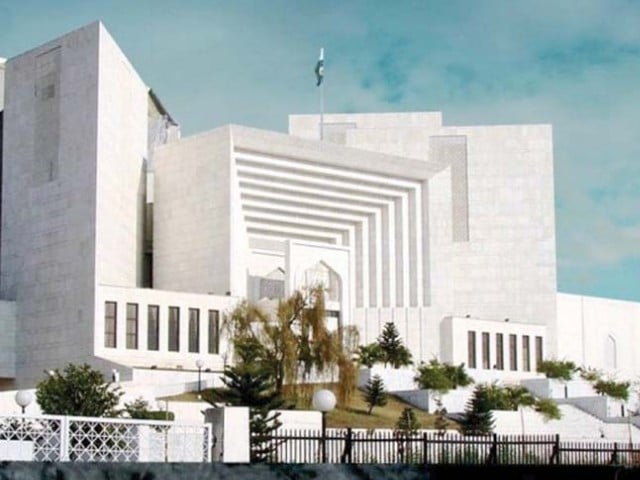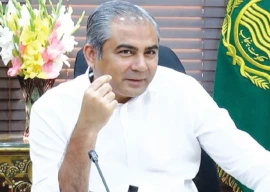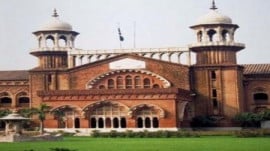
A three-judge bench of the apex court, headed by Chief Justice of Pakistan Mian Saqib Nisar and comprising Justice Maqbool Baqar and Justice Ijazul Ahsan, will take up petitions filed by different politicians and parties including PTI chief Imran Khan, the PPP, Sheikh Rasheed, and others.
Dr Farogh Nasim will appear on behalf of Rasheed. Sardar Latif Khosa will argue PPP’s case, while Babar Awan will represent Imran Khan.
The petitions contended that Section 203 of the Election Act did not expressly permit any person disqualified by a court to remain or become an office bearer of a political party.
Elections Act challenged ‘for aiding corruption’
“The disqualification recorded by a court of law under Articles 62 and 63 of the Constitution cannot be overtaken by a sub-constitutional law, and if a person cannot become a parliamentarian due to the operation of constitutional law, he surely cannot become head or office-bearer of a political party.”
Terming the amendment mala fide and unconstitutional, the petitioners also contended that new rules were being introduced just to accommodate Sharif. They also requested the SC to declare Sharif disqualified as the party’s head.
Earlier, the SC raised objections over these petitions. Later, these were entertained after hearing an appeal in chambers.
Legal experts say that the proceedings will be significant for PML-N ahead of the 2018 general elections.
The National Party, which is an ally of the PML-N in the Centre and Balochistan, has also challenged the Election Act over a requirement that all political parties are bound to deposit Rs200,000 and submit list of 2,000 members with signatures and CNIC copies by December 2, 2017, failing which, registration of those political party would be cancelled.
National Party Punjab President Ayub Malik filed a petition through Raheel Kamran Sheikh. The same bench will take up this petition.
The petitioner has challenged the increase in allowable election expenses for a National Assembly candidate, from Rs1.5 million to Rs4 million, and, in the case of a seat in the Provincial Assembly, from Rs1 million to Rs2 million.
“The limit of allowable expenditure aims to provide candidates with a level playing field. The object of the provisions limiting election expenses or expenditure is two-fold – in the first place, it should be open to any individual or any political party, howsoever small, to be able to contest an election on a footing of equality with any other individual or political party…and no individual should be able to secure an advantage over others by reason of superior financial position.
Secondly, there is an underlying assumption that one of the most important ways of ensuring that elections are free and fair is to weed out the influence of “money power”, and for this reason, election expenses must be effectively controlled, which was also reflected in the fact that in almost all countries of the world where representative forms of government prevail, provisions as to election expenses have invariably been enacted.





1732688687-5/Copy-of-Untitled-(95)1732688687-5-270x192.webp)




1732617223-0/Untitled-design-(69)1732617223-0-270x192.webp)






COMMENTS
Comments are moderated and generally will be posted if they are on-topic and not abusive.
For more information, please see our Comments FAQ